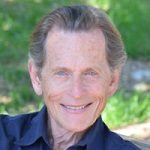Below is our recent interview with Jim Selman, the Founder of ParaComm:

Q: How did you get where you are today
A: I was fortunate to have been a young partner in a large consulting firm in 1974 specializing in computer systems and information technologies. As a practitioner, I became obsessed with the question of why it is so difficult to implement big changes in an organization? At that time, the concept of organizational culture didn’t exist. I gave up the partnership and began learning and working with a variety of academics and practitioners and also participated in a number of the programs that were becoming popular in the human potential movement. I found two mentors who I worked extensively with during that era, Werner Erhard and Fernando Flores. Werner introduced me to the field of transformation and Fernando introduced me to the kind of rigorous philosophical thinking and his ontological body of knowledge having to do with language and commitment. I co-founded a company called Transformational Technologies in 1984 and later my firm Paracomm Partners in 1988. I was among the fist consultants to focus on organizational culture, paradigms and large-scale change. I was also the first publish an article called “Coaching and the Art of Management” and was an early leader in evolving what is today the ‘coaching industry’ as well as later shifting my focus to Transformational Leadership. Today, my interest is in what is happening in the world and how human beings relate to the future and to possibility.
Q: Can you tell us something about your book? (Living in a Real-Time World)
A: A lot of people are waking up to the fact that we’re living in a very unprecedented time in history. The rate of change is accelerating, we can no longer trust our predictions, its clear leaders have less and less control over what’s happening (if they ever did) and most of us are overwhelmed with complexity and how everything seems to be connected to everything else. The central idea in my book is that all of this comes down to our living in what I’ve called a ‘real-time world’….meaning a world in which the gap between the future and the past is disappearing – we can no longer rely on our past to inform our decisions and choices. We must realize that we’re creating the future moment-to-moment and at the same time no one has any idea what’s coming — what’s emerging. We’re living into a future that is unimaginable.
Living in a real-time world means cultivating abilities that everyone already has (like the ability to read) in such a way that we are prepared for whatever happens. Even as recently as a few months ago, no one could have predicted the Corona Virus or where the world would be today or its impact on our individual lives. While no one is happy with what’s happening, if people are prepared and have cultivated what I call ‘existential confidence’ they won’t be afraid, they will be centered and calm, they will mostly be in action, they won’t be suffering and they will be able to more effectively support and inspire others to get through this as best they can.
 Recommended: SigniaDocuments Provides The Only Mortgage Document Engine Built Entirely Of Category 1 SMART Docs
Recommended: SigniaDocuments Provides The Only Mortgage Document Engine Built Entirely Of Category 1 SMART Docs
Q: What made you write the book? Why now?
A: I wrote the book primarily because I observed more and more conversations going on everywhere — in the media, in coffee shops and in organizations — was about what people thought was going on, about what they thought will happen, about everything — I realized we are becoming a spectator society and more and more disconnected from our responsibility for they way it is and the possibility of how it might be. Life is more than a point of view. It is about action and results. I began my career about the time computers transformed from being about informing to being about performing. This was when the term ‘real-time’ computing came into our language.
I wasn’t thinking about this global pandemic when I wrote Living in a Real-Time World: 6 Capabilities to Prepare Us for an Unimaginable Future. Most people are struggling to get their heads around how to even think about the scale of the disruption and seriously wondering about what they can do in the coming weeks and months. No one can predict what’s coming next. Everyone has a choice, however, about how they relate to what’s happening and how to prepare for the future. Based on the feedback I’ve been receiving in the last few weeks, readers have been reporting to me that the ideas in Living in a Real-Time World on how to navigate life amidst accelerating uncertainty and change are very timely and much needed. The chapters on Acceptance and Caring seem to be particularly useful.
Q: How do you prepare for an unimaginable future? Is that really possible?
A: Obviously I think so. One analogy I use when I talk about preparing for something that you can’t know in advance is Star Trek. The premise of that iconic program is that humanity is “going where no one has ever gone before”. The Starship Enterprise is on a journey and like the early explorers, they don’t have any maps. They can’t even be sure there will be a ‘there’, there. They are navigating into a future that is pure possibility and have only two points of reference — where they are and where they’ve come from. This is all you need to navigate in a real-time world. They are navigating based on their commitments and learning from their mistakes while making maps for others who follow.
The six capabilities I talk about in the book are:
• Accepting: the art of surrender
• Being: the art of context
• Listening: the art of mastering moods
• Communicating: the art of relating
• Appropriating: the art of situational learning
• Caring: the art of love
I believe that these capabilities are already innate in every human being. For example we all the have an innate capability of reading, although not everyone is literate. Likewise not everyone has developed or is in touch with their ability to listen, or relate or even to love for that matter. I am hoping that the book will help people to become aware of these capabilities within themselves if they aren’t already. I want to invite everyone to begin working on developing and expanding these capabilities in their every day life.
Q: Are you able to apply these ideas in your organizational consulting with business clients?
A: Absolutely. Given most of my business is working with large corporations these concepts are particularly relevant. Every organization I know is planning and allocating resource is based on predictions. That is the basis for all budgeting and planning. Even though most executives will agree they don’t have a lot of confidence in their forecasts and recognize that they (and all of us) are in the middle of some sort of massive paradigm shift, there isn’t much clarity around what to do differently. I am showing them that they don’t need new tools or new models or another consulting approach. What they need is a rigorous way of understanding human beings. People are not fixed objects that need to fit into predefined ‘jobs’ and follow procedures to get results. Most of my clients agree with me and are clear that their future is a function of individual human beings capable of the kinds of leadership and creative work that can help invent the future. They are actively challenging their most basic assumptions and even their common sense about how the world works.
At the end of the day there is more organizational solidarity, better moods, more trust, more authentic communication, open-minds, less blame, fewer excuses, clear accountability,
more engagement and most of all people are all more personally responsible which often translates into having breakthroughs in their personal lives as well.
Over the years I’ve watch a lot of terminology come into vogue in organizations and in the management literature. For example slogans like ‘consider the possibility’ or the Shearson-Lehman campaign around ‘commitment, or the idea of ‘coaching’ or the word ‘paradigm’ have all become overused, frequently diluted by marketing programs and after a while lose the power of whatever distinction they offered at the outset. Currently the word ‘transformation’ is following the same trajectory — it seems to be everywhere. I believe that transformation is the term for distinguishing a kind of change, The kind of change that happens when we change ourselves and our relationship to the circumstances. It is not a big change in the circumstances themselves. It will be a shame if the term and the possibility of transformation becomes just another management fad. Paracomm Partners brings to our clients a rigorous way of thinking and a powerful, well-grounded body of knowledge underlying the field of transformation. I for one, believe it has an important if not essential contribution to make to the broader field of leadership and human creativity and also to the future organizational theory.
Q: How does the future you are talking about look? How much is world going to change?
A: In a way your question makes my point. Any answer will be another speculation, another prediction, another guess. My answer is an unqualified “I don’t know” and I don’t think anyone knows or can know any more than my grand parents could have imagined a world of the iPhone and the Internet and a hundred other aspects of our everyday reality now. And its not just the high tech gee-whiz examples that would have been unimaginable. They could not have imagined many of both the positive and negative aspects of our lives from elimination of some diseases and universal civil rights to the breaking down of the nuclear family, existential threats to our environment, the climate crisis or the potential collapse of the global economy.
There are as many possible futures as there are possible ways to interpret the past. The question of whether our future is utopian or dystopian is almost irrelevant and is often a distraction that keeps us in a speculation-spectator relationship with life — witnessing reality unfold with about as much involvement as we have watching Netflix. The more relevant question is what are you committed to today, what’s happening in your conversations and in your actions right now? Who are you being and how are you choosing to relate to your circumstances right now?
Activate Social Media:


 Recommended:
Recommended: 